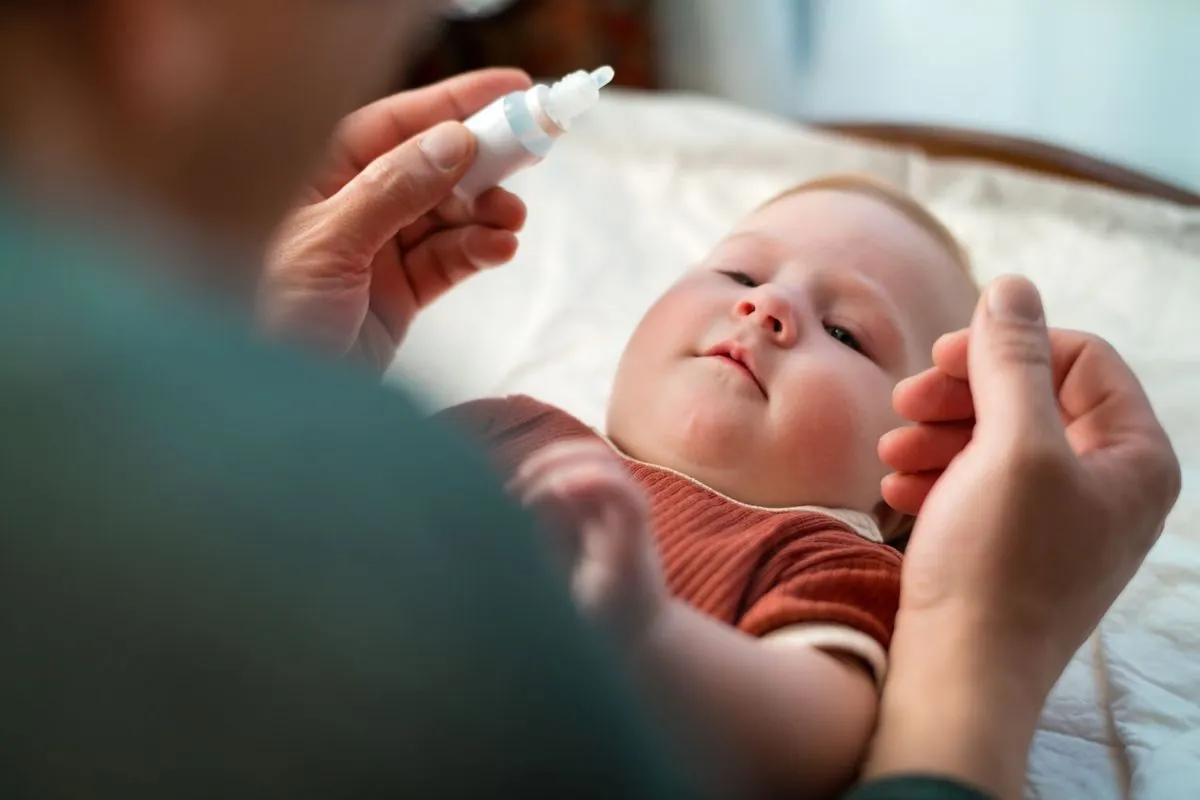Saline Nasal Drops Cut Children's Cold Duration by Two Days, Study Finds
Research reveals saline nasal drops reduce cold symptoms in children from eight to six days. The treatment may also decrease transmission to family members, offering a simple, safe solution for parents.

A recent study has unveiled a promising method to alleviate the burden of common colds in children. Researchers have discovered that saline nasal drops can significantly reduce the duration of cold symptoms, offering relief to both young patients and their families.
Professor Steve Cunningham of the University of Edinburgh, a key researcher in this study, explained the impact of colds on children and their families. Children typically experience up to 12 upper respiratory tract infections annually, commonly known as colds. While medications like paracetamol and ibuprofen can alleviate symptoms, no treatments have been available to expedite recovery until now.
The study, presented at the European Respiratory Society Congress in Vienna, revealed that children using salt water nasal drops experienced cold symptoms for an average of six days, compared to eight days for those receiving usual care. This two-day reduction in symptom duration could provide significant relief for families dealing with frequent colds.

Interestingly, the common cold has a rich history in medical research. The first cold virus was isolated in 1956 by scientists at the National Institutes of Health, marking a significant milestone in understanding this ubiquitous ailment. Despite being a frequent occurrence, with adults typically experiencing 2-3 colds per year and children up to 8-10, effective treatments have remained elusive.
The study utilized a 2.6% salt water concentration, which is not currently available over the counter. Professor Cunningham and his team plan to release instructions for parents to prepare the solution at home. This approach offers a cost-effective and accessible treatment option for families.
The mechanism behind the effectiveness of saline drops is intriguing. Professor Cunningham explained that the chloride in salt helps cells lining the nose and windpipes produce more hypochlorous acid, which aids in suppressing viral replication. This process reduces the length of the virus infection and, consequently, the duration of symptoms.
The research involved 407 children aged up to six years, with 301 developing colds during the study period. The results were promising, showing not only a reduction in symptom duration but also a decrease in household transmission rates. In households using the drops, 46% reported family members catching a cold, compared to 61% in those not using the drops.
It's worth noting that while this study focuses on children, colds affect people of all ages. The economic impact of the common cold is significant, with billions lost in productivity annually. This underscores the importance of finding effective treatments and preventive measures.
Dr. Matthew Siggins, a research fellow at Imperial College London not involved in the study, commented on the moderate success of the treatment in reducing symptom length. He noted that the results align with a larger study in adults, which also found a two-day reduction in symptoms with saline water use.
For parents and caregivers, especially those dealing with children who have lung conditions, this simple and safe solution could be a game-changer. Dr. Andy Whittamore, clinical lead at Asthma + Lung UK, emphasized the potential relief this treatment could bring to families. He also reminded that for children with lung conditions experiencing flare-ups, following their action plan and seeking medical help remains crucial.
As we approach the colder months, when colds are more prevalent (though not directly caused by cold weather), this research offers a promising tool in the ongoing battle against this common ailment. While the common cold, named in the 16th century, continues to challenge medical science, simple solutions like saline nasal drops demonstrate that effective treatments can sometimes be found in the most basic elements.
"We found that children using salt water nose drops had cold symptoms for an average of six days where those with usual care had symptoms for eight days. The children receiving salt water nose drops also needed fewer medicines during their illness."
This study not only provides a practical solution for managing cold symptoms but also highlights the importance of continued research into common ailments. As we learn more about the over 200 different viruses that cause the common cold, including the prevalent rhinoviruses responsible for more than 50% of cases, we move closer to more effective treatments and prevention strategies.


































